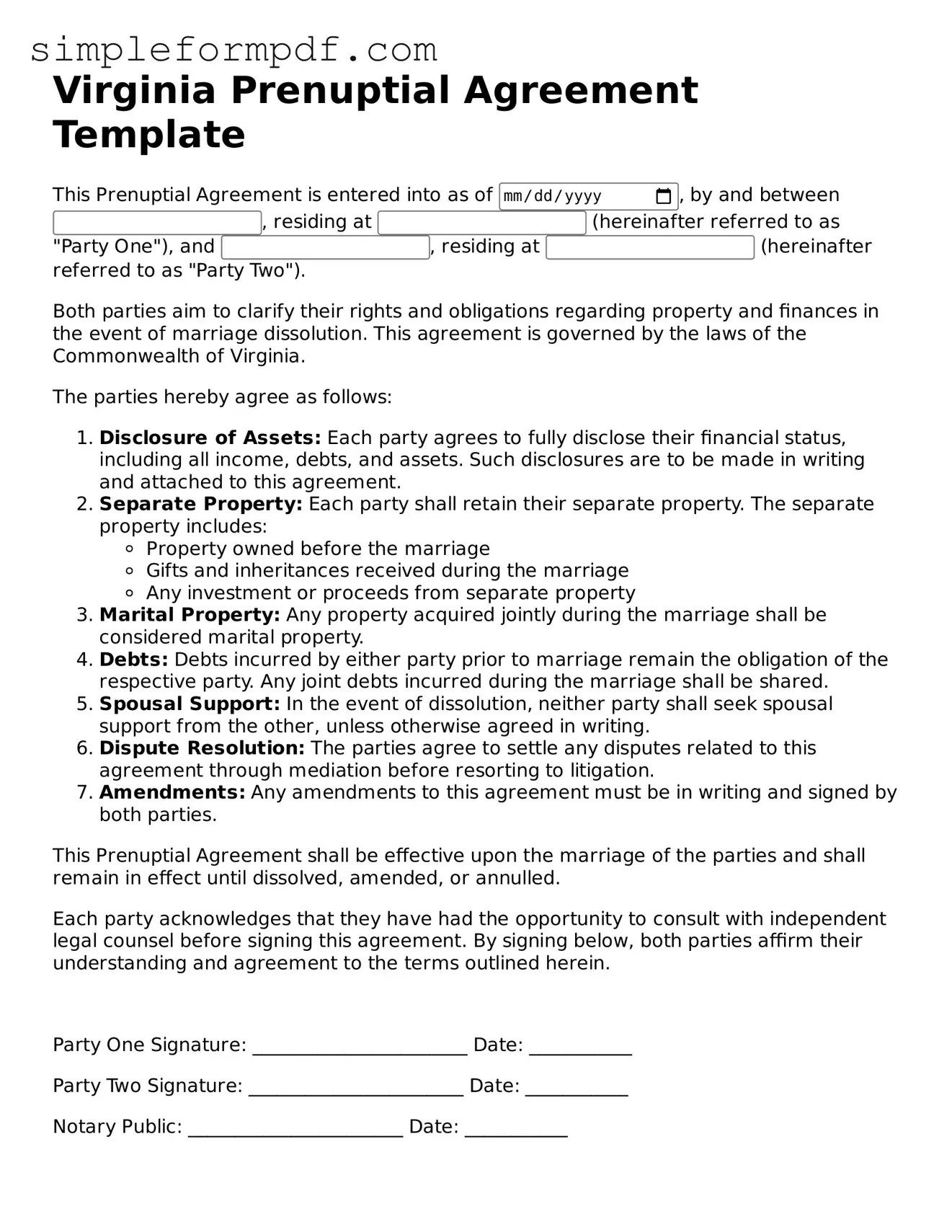Free Prenuptial Agreement Form for the State of Virginia
A Virginia Prenuptial Agreement form is a legal document that outlines the financial and personal rights of each spouse in the event of divorce or separation. This agreement helps couples clarify their expectations and protect their assets before entering into marriage. For those considering this important step, filling out the form can provide peace of mind and clarity.
Take control of your future by filling out the Virginia Prenuptial Agreement form today! Click the button below to get started.
Launch Editor

Free Prenuptial Agreement Form for the State of Virginia
Launch Editor
Need instant form completion?
Finish Prenuptial Agreement online in just a few minutes.
Launch Editor
or
Download PDF
